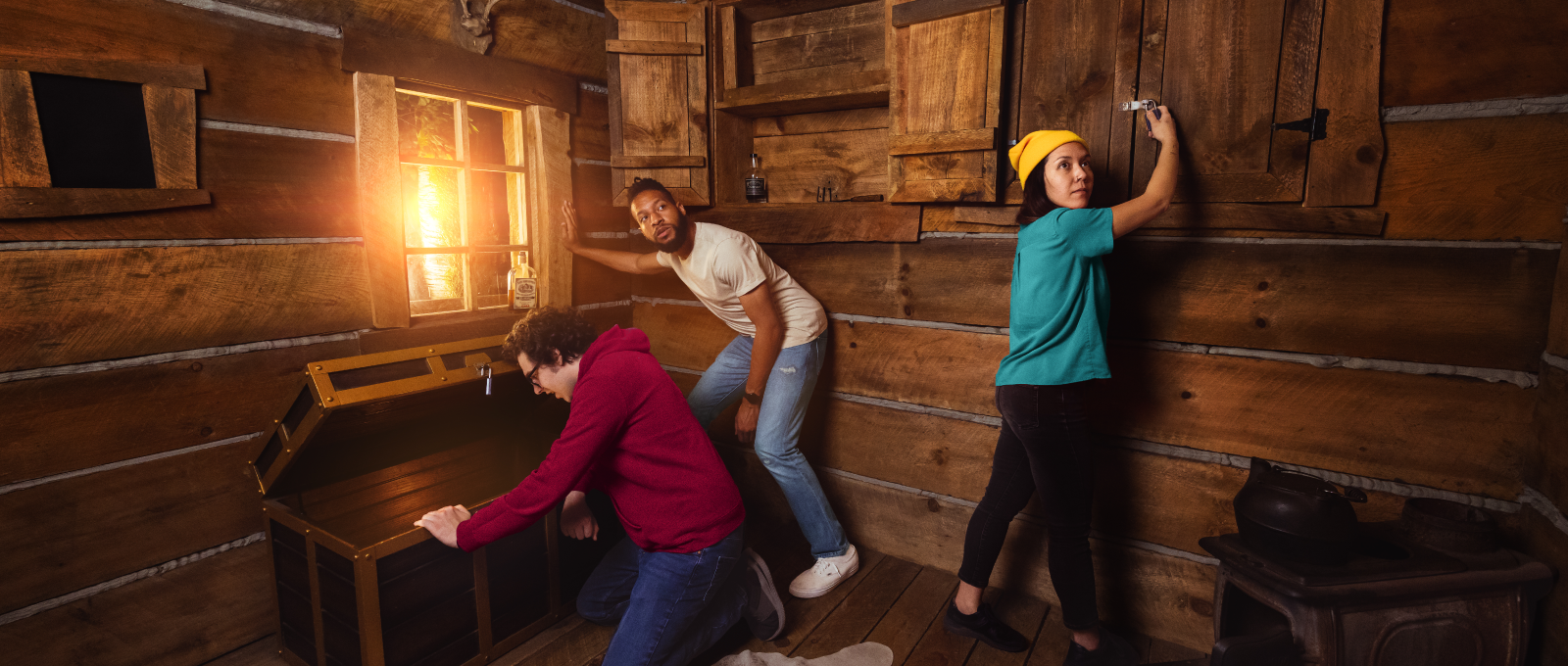Best Escape Room-- Examination Your Abilities and Address the Enigma
Best Escape Room-- Examination Your Abilities and Address the Enigma
Blog Article
Team Methods: How to Team up Successfully in a Getaway Area
Browsing the intricacies of a retreat area demands more than mere enthusiasm; it calls for a well-coordinated method based in clear interaction, critical function jobs, and experienced time monitoring. Teams should proactively pay attention to every participant's understandings, appoint functions that straighten with individual strengths, and keep routine check-ins to ensure focus and prevent redundancy. By fostering an environment that values communication and flexibility, teams can significantly heighten their performance and success prices. The subtleties of these approaches can transform the experience, yet how specifically can they be implemented to take full advantage of the capacity for success?
Establish Clear Communication

To assist in clear interaction, it is essential to assign a main point of get in touch with for info circulation. Quick, focused updates from each group member can keep the group educated without overwhelming them with info.

Assign Duties Strategically
While clear communication sets the structure for reliable teamwork, appointing functions purposefully makes certain that each staff member's staminas are utilized effectively. In an escape area situation, the time-sensitive and intricate nature of obstacles requires a well-organized method to job delegation. By recognizing and leveraging individual expertises, teams can enhance their analytical capacities and enhance overall performance.
Somebody with a keen eye for detail might stand out in discovering concealed things, while a logical thinker could be much better suited to resolving challenges. This function often calls for solid business and social skills.
Second, make sure that functions are versatile and adaptable. As new challenges emerge, the team must have the ability to pivot, reapportioning jobs as called for. This flexibility helps maintain energy and stops traffic jams that can happen because of stiff duty tasks.
Inevitably, a calculated strategy to duty task not only optimizes the strengths of each employee however likewise fosters a cohesive setting, driving Read More Here the group in the direction of a successful escape.
Use Diverse Abilities
Recognizing and harnessing the varied skills within your group can substantially raise your performance in a getaway room. Each employee brings one-of-a-kind strengths to the table, and effectively leveraging these abilities can accelerate problem-solving and improve overall performance. A group participant with solid logical abilities might succeed at deciphering complicated codes or patterns, while an additional with keen empirical abilities may promptly spot surprise hints that others may forget.
Effective interaction is key to using these varied abilities. Urge team participants to voice their understandings and ideas without delay, guaranteeing that all potential options are considered. This inclusive method promotes a dynamic environment where imagination and essential reasoning can thrive. Additionally, designating jobs that line up with each member's staminas can avoid bottlenecks and guarantee that progress is continual.
Furthermore, diversity in abilities usually equates to diversity in assuming designs, which is very useful in a getaway space setup. While some challenges may call for logical thinking and precision, others may benefit from imaginative and side reasoning. By acknowledging and leveraging this variety, teams can deal with a more comprehensive variety of obstacles a lot more successfully, therefore increasing their opportunities of an effective escape.
Manage Time Properly

First, allocate preliminary minutes for a quick survey of the area. Recognize noticeable challenges and split tasks based upon group participants' toughness, ensuring that no one is still. Establish interior time checkpoints to review progress occasionally; as an example, aim to have half the puzzles addressed by the mid-point of the game. This method can help maintain the group focused and prevent time from slipping away unnoticed.
Furthermore, avoid one-track mind. If a challenge great site is taking too long, revolve staff member or go on to another obstacle, returning later with fresh perspectives. Communication is critical-- keep everybody upgraded on fixed problems and staying tasks to stay clear of repetitive efforts.
Last but not least, use any hints or hints moderately but tactically - best reference escape room. Knowing when to request for assistance can conserve important time. By adhering to these time monitoring concepts, groups can substantially boost their chances of an effective and satisfying retreat room experience
Debrief and Mirror
Reflection is a necessary aspect of group growth and improvement in the context of retreat spaces. As soon as the challenge is completed, whether effectively or otherwise, it is essential for the group to participate in a structured debriefing session. This procedure allows employee to assess their performance, determine toughness, and pinpoint areas for enhancement.
Start the debrief by reviewing what worked out. Highlight particular circumstances of reliable interaction, problem-solving, and partnership. Identifying these favorable behaviors reinforces them and motivates their repeating in future obstacles.
Go over minutes of confusion, miscommunication, or inefficient techniques. Urge an open and positive dialogue where team members can share their perspectives without anxiety of criticism.
Conclusion
In conclusion, successful partnership in a getaway room is asserted upon clear interaction, calculated function jobs, the effective use of varied skills, and proficient time monitoring. By creating a natural and adaptive team setting, the likelihood of successfully fixing puzzles and attaining the goal of getting away the area is substantially boosted.
Report this page